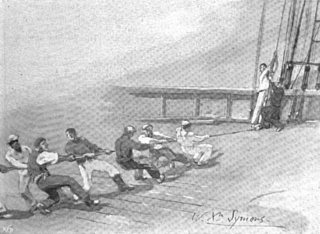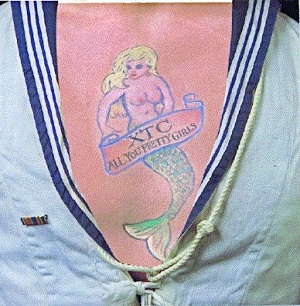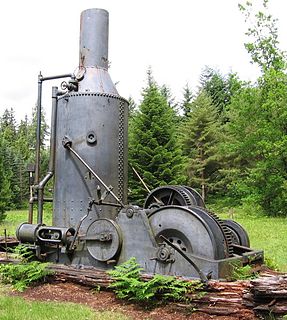 W
WA sea shanty, chantey, or chanty is a genre of traditional folk song that was once commonly sung as a work song to accompany rhythmical labor aboard large merchant sailing vessels. They were found mostly on British and other European ships, and some had roots in lore and legend. The term shanty most accurately refers to a specific style of work song belonging to this historical repertoire. However, in recent, popular usage, the scope of its definition is sometimes expanded to admit a wider range of repertoire and characteristics, or to refer to a "maritime work song" in general.
 W
W"All You Pretty Girls" is a song written by Andy Partridge of the English rock band XTC, released on their 1984 album The Big Express. It peaked at number 55 on the UK Singles Chart, and its music video cost £33,000 to make. Partridge remembers that song came about while he was "dicking around, playing some Hendrix. ... I was just playing this little two-note, quasi-Hendrix thing, and I liked the inherent melody in it."
 W
W"Donkey Riding" is a traditional work song or sea shanty originally sung in Canada, Scotland and the Northeastern United States. It has also become popular as a children's song. The earliest written record of the song dates to 1857. The tune and words are an adaptation of "Highland Laddie". It is generally, but not universally, agreed that the "donkey" of the song title is a reference to the steam donkey, a kind of general-purpose steam engine. Stan Hugill, a sea-music historian, said that he had been informed that the song was also sung in the Gulf Ports as well as being popular at sea.
 W
W"Il était un petit navire" is a traditional French song that is now considered a children's song, despite its macabre tone.
 W
W"Merck toch hoe sterck" is a Dutch war song and sea shanty, written around 1626 by Adriaen Valerius. The music is based on an Elizabethan lute song written by Thomas Campion in 1606.
 W
W"Roll, Alabama, Roll" is an American-British sea shanty of the nineteenth century. It is based on the exploits of the CSS Alabama, a sloop-of-war of the Confederate States Navy which enjoyed success as a commerce raider against Union shipping during the American Civil War.
 W
W"Rule, Britannia!" is a British patriotic song, originating from the 1740 poem "Rule, Britannia" by James Thomson and set to music by Thomas Arne in the same year. It is strongly associated with the Royal Navy, but is also used by the British Army.
 W
W"Sloop John B" is a Bahamian folk song from Nassau. A transcription by Richard Le Gallienne was published in 1916, and a version was included in Carl Sandburg's The American Songbag in 1927. Since the early 1950s there have been many recordings of the song with variant titles including "I Want to Go Home" and "Wreck of the John B".
 W
WLaura Alexandrine Smith (1861-1902) was an English musician, ethnomusicologist and one of the earliest collectors of sea shanties. Smith’s The Music of the Waters, published in 1888, was possibly the first collection of sea shanties to include music as well as words.
 W
WThe "Song of the Volga Boatmen" is a well-known traditional Russian song collected by Mily Balakirev, and published in his book of folk songs in 1866. It was sung by burlaks, or barge-haulers, on the Volga River. Balakirev published it with only one verse. The other two verses were added at a later date. Ilya Repin's famous painting Barge Haulers on the Volga depicts such burlaks in Tsarist Russia toiling along the Volga.
 W
W"Spanish Ladies" is a traditional British naval song, describing a voyage from Spain to the Downs from the viewpoint of ratings of the Royal Navy.